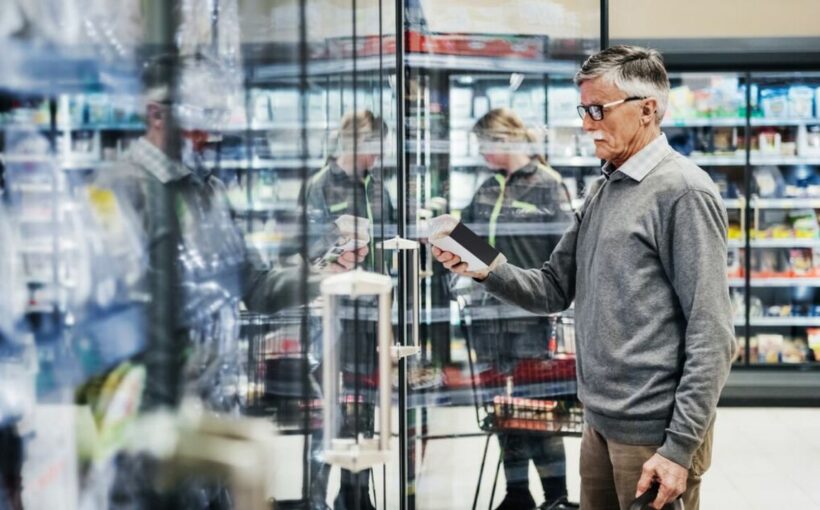
We use your sign-up to provide content in ways you’ve consented to and to improve our understanding of you. This may include adverts from us and 3rd parties based on our understanding. You can unsubscribe at any time. More info
Though households spent 4.7 percent more at supermarkets and grocery stores over the four weeks to October 8, the volume of items bought dropped by six percent.
That compares to 2.5 percent growth in till sales the previous month when sales volumes dipped by 5.4 percent.
NielsenIQ said this indicates customers are spending more due to inflation but they are buying less in a bid to save due to the current crisis.
Sales of household goods fell 9.4 percent, while fresh produce was down 8.3 percent and meat, fish and poultry sales tumbled eight percent.
NielsenIQ added that general merchandise sales, such as clothes and home furnishings, dived 7.1 percent.
Mike Watkins, NielsenIQ’s UK head of retailer and business insight, said: “In recent weeks, there has been a small shift away from fresh to frozen.”
“There has been slightly less spend on fruit and vegetables and fresh meat, fish and poultry and slightly more spend on impulse confectionery and soft drinks.”
“But as we edge closer to December, the challenging external economic factors that impact household budgets, such as concerns on mortgages and rising energy costs, become greater.”
He added that with Christmas approaching and set to add to the pressure on household budgets, shoppers may start to look for cheaper alternatives and bring forward some seasonal spending to help spread the cost.
Elsewhere, comparison site Moneysupermarket.com has improved its profit forecasts following a better than expected third quarter, due to growing numbers of people looking to save money by switching. Chief executive Peter Duffy said: “The cost-of-living crisis makes our purpose of helping households save money as important as ever. This quarter was another good performance.”
The firm said revenues rose 33 percent to £101.9million with insurance sales up 10 percent to £45.3million and money search takings up 42 per cent to £28.1million.
Travel rose 204 percent to £4.5million, thanks to the increase in people flying.
Source: Read Full Article
